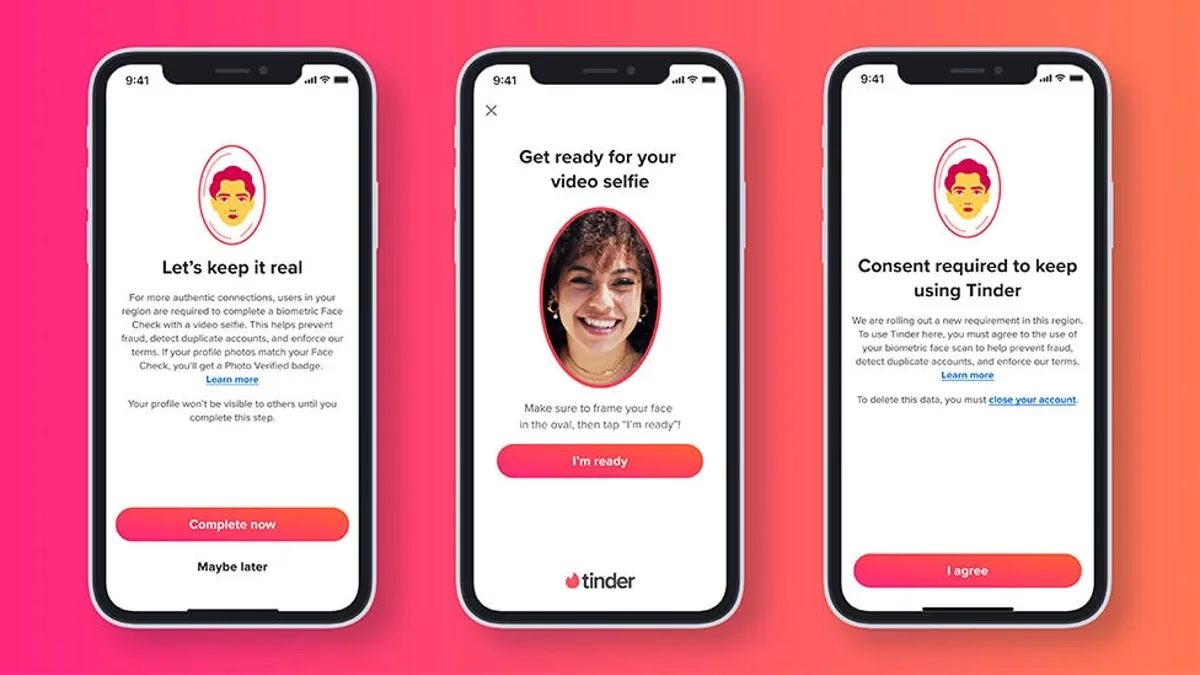Tinder's Face Check: A New Era for Online Dating Authenticity?
Well, here we are. It seems the wild west of online dating, particularly on platforms like Tinder, is getting a bit of a sheriff. If you're in California and you're a Tinder user, or planning to be one, you've probably heard the buzz – or perhaps already encountered it. As of early July 2025, Tinder has rolled out a mandatory facial recognition feature, aptly named "Face Check," for logins in the Golden State. It's a big move, a significant shift from the old ways of just linking your phone number or Meta account. And honestly, it's about time we had a serious conversation about what this means for users, for the platform, and for the broader landscape of digital identity.
Why the Sudden Push for Facial Recognition?
Let's be real, the online dating scene has its fair share of challenges. Fake profiles, catfishing, bots, and scammers are rampant. It's a constant headache for users just trying to connect with real people. I mean, how many times have you matched with someone only to realize their profile picture was clearly from 2008, or worse, they're trying to sell you crypto? It's frustrating, right?
Tinder's primary stated goal with Face Check is to combat this very issue. They want to enhance user authenticity and create a more trustworthy environment. Think about it: if every user has to verify their face, it becomes much harder for bad actors to operate. This isn't just a random whim; it's part of a larger industry trend. Tech companies across the board are grappling with identity verification, trying to build trust in a digital world where anonymity can be a shield for malicious intent. This move by Tinder could very well set a new standard for other dating apps, and even other social platforms, to follow.
The California Pilot: A Strategic Rollout
It's interesting, isn't it, that California is the initial testing ground? It makes a lot of sense, actually. California is a tech-savvy state, often at the forefront of digital adoption, but it's also incredibly privacy-conscious. If Tinder can successfully implement and gain acceptance for Face Check here, it bodes well for a broader rollout. It's like a controlled experiment, allowing them to iron out kinks and gauge public reaction before potentially expanding nationwide in the U.S., and then, who knows, globally.
This phased approach is smart. It allows them to collect data, address user concerns, and refine the technology. Imagine the logistical nightmare of rolling this out worldwide all at once. Plus, California's regulatory environment often influences national and international standards, so getting it right here is crucial.
User Reactions: A Mixed Bag of Emotions
Now, for the human element. How are people reacting to this? As you might expect, it's a real mixed bag. On one hand, many users are probably breathing a sigh of relief. Finally, a way to filter out some of the fakes! The promise of a more authentic user base is incredibly appealing. Who wouldn't want to spend less time sifting through bots and more time connecting with genuine individuals?
But then there's the other side of the coin: privacy concerns. And these are legitimate. When a company asks for your facial data, it raises immediate questions. How is this data stored? Who has access to it? How long is it kept? Could it be used for other purposes? These aren't trivial questions. People are naturally wary of giving up such sensitive biometric information, especially to a platform that, let's be honest, has had its share of security headlines over the years. Some folks on social media, particularly on platforms like X, are vocal about their discomfort, fearing increased surveillance or potential misuse of their data. It's a delicate balance between security and personal liberty, isn't it?
The Broader Implications for Digital Identity
This isn't just about Tinder; it's a microcosm of a much larger debate about digital identity. We're moving towards a future where biometric verification is becoming increasingly common, from unlocking our phones to accessing banking apps. Tinder's adoption of Face Check is another step in this direction.
On the positive side, it could lead to a more secure and trustworthy online ecosystem. Imagine a world where online fraud is significantly reduced because identity is verified at a deeper level. That's a pretty compelling vision. However, the potential downsides are equally significant. The centralization of biometric data, the risk of data breaches, and the erosion of anonymity are all serious considerations. We need robust regulations and transparent policies to ensure that these powerful technologies are used responsibly. It's not just about stopping bots; it's about safeguarding our digital selves.
What's Next for Tinder and Beyond?
So, what does this mean for Tinder's 9.2 million global subscribers? For now, it's a California-specific mandate. But if it proves successful in reducing fraud and improving user experience without triggering a mass exodus due to privacy fears, you can bet it'll spread. It's a bold move, one that could solidify Tinder's position as a leader in user verification, or it could alienate a segment of its user base. Only time will truly tell.
My take? This is an inevitable evolution. As digital interactions become more central to our lives, the need for stronger identity verification will only grow. The challenge lies in implementing these solutions in a way that respects privacy and builds user trust, rather than eroding it. It's a tightrope walk, for sure. And we, as users, need to stay informed, ask the tough questions, and hold these platforms accountable for how they handle our most sensitive data. Because ultimately, it's our faces, our identities, on the line.
